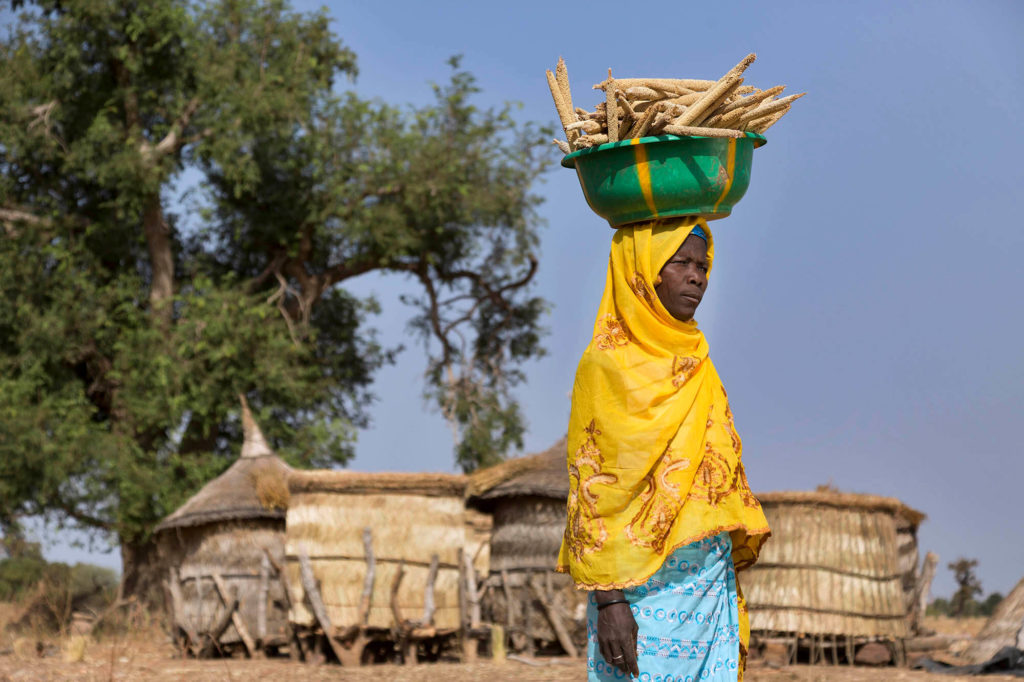Improving the resilience of rural communities in the Sahel through pro-equity agroecology interventions
Systematic transformation is essential to tackle inequity and build resilience
In the Sahel, the vast gap in food security between poor and wealthy households shows that economic growth benefits are not reaching the most vulnerable, particularly women and children, within rural communities. Evidence indicates that to improve resilience, a progressive transformation of the entire Sahelian farming system to address climate change and land degradation is essential.
The primary way to bring about the transformation of the farming system in the Sahel is through low-cost agroecological practices “working with nature” to sustain biodiversity and restore soils.
However, for agroecology to reach its full potential impact to strengthen resilience, it must address inequity issues within rural communities. This means that agroecological programs must involve specialized activities tailored to the specific needs of the most vulnerable groups and households. Social and governance “safeguarding” is vital to enable whole communities to improve resilience, but also ensure that the needs of everyone – especially vulnerable groups – are taken into account.

Tailored resilience initiatives are vital to meet the complex needs of rural communities
Vulnerability looks different across all rural communities. Agroecological resilience-building initiatives must take these variations and dynamics into account, to identify which households are the most susceptible to food and nutrition insecurity. In turn, the support provided must be tailored to meet the specific livelihood needs of different categories of households, but in particular, those of the most vulnerable.
Evidence shows that failing to address this inequity issue within agricultural improvement programs can deepen the marginalization of the most vulnerable in rural communities, including women and resource-poor farmers.
Inclusion and participation are crucial to tackling sensitive equity issues
Crises affecting climate, water, soil, and food in the Sahel region have led to a breakdown in community solidarity, further justifying the need to tackle equity issues. Agricultural development programs both affect and are affected by complex community dynamics and individual sensitivities must be taken into account. As external agents operating within the relatively neutral field of agroecology, non-governmental and civil society organizations are generally better placed to promote pro-equity interventions.
Incorporating community participation from the outset is essential. Considering dynamics and raising awareness in a culturally sensitive manner is essential to shifting perspectives surrounding often controversial equity redress activities. Ultimately, this inclusive approach helps community leaders to accept the necessity of tailoring support to benefit the most vulnerable.
From National Governments to Non-Governmental Partners: Improving Resilience on the Ground
National governments should use a participatory approach to define a pro-equity-focused national agricultural policy, creating a coordinated strategy to enable municipal councils to lead resilience-strengthening agricultural development plans.
Local governments need to improve their understanding of inequality and inequity within relevant sector programs, incorporating these considerations into local development plans. Local organizations must be empowered to become the driving forces behind equity-focused agroecological development.
Farmer organizations should arrange visits and demonstrations to show how to implement successful pro-equity agroecology programs. Working alongside local governments, local civil society organizations must prioritize the inclusion of more vulnerable households within agricultural programs.
The non-governmental sector must raise awareness of inequality and inequity within its organizations, encouraging participation, positive representation, and decentralization of training programs to achieve the broadest reach possible among marginalized groups.
Strategic partners should engage with relevant national government agency donors, NGOs, and private sector stakeholders, to design a comprehensive strategy for introducing equity-oriented content into national and local development planning.
For more information about improving the resilience of rural communities in the Sahel, read our Case Study.
